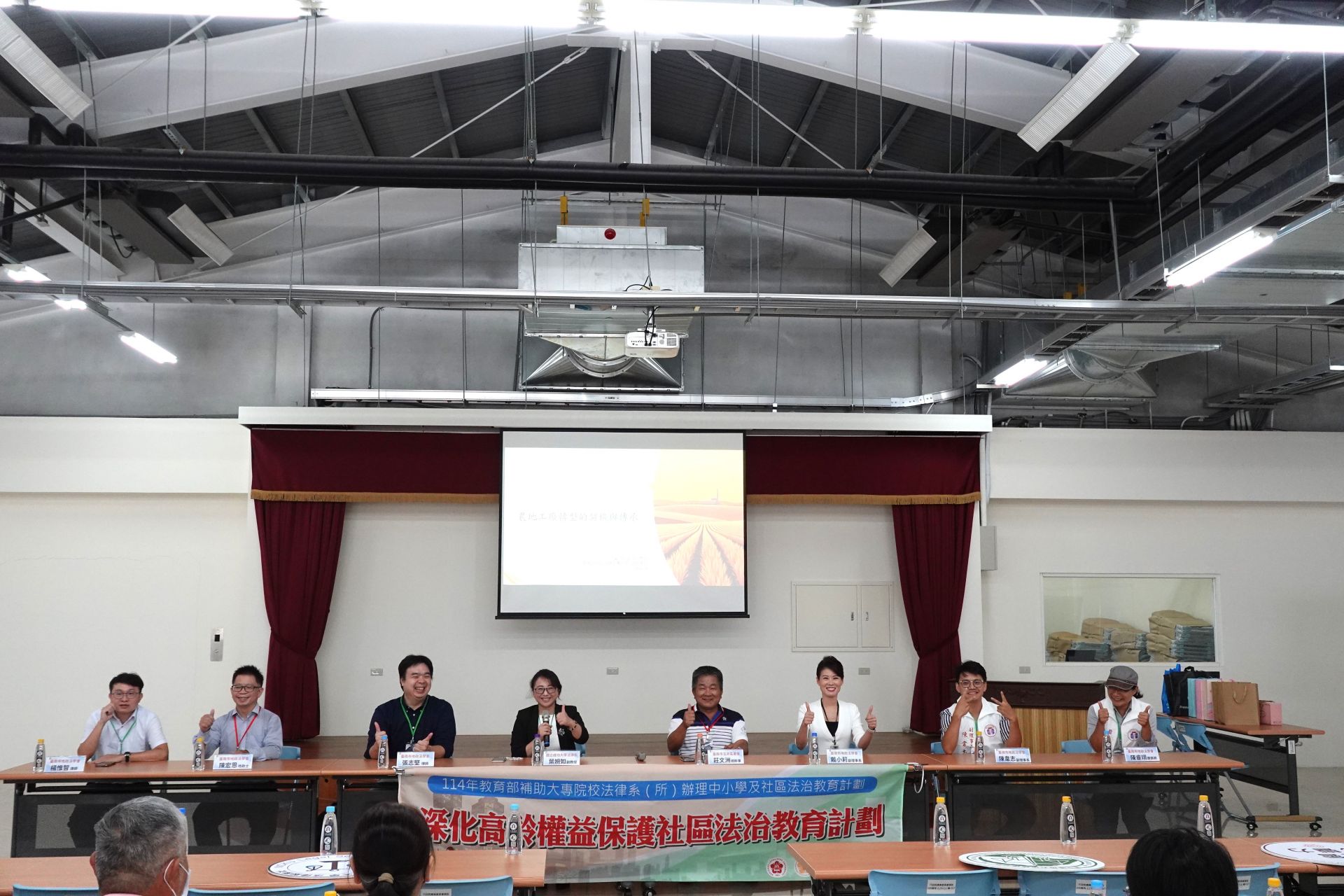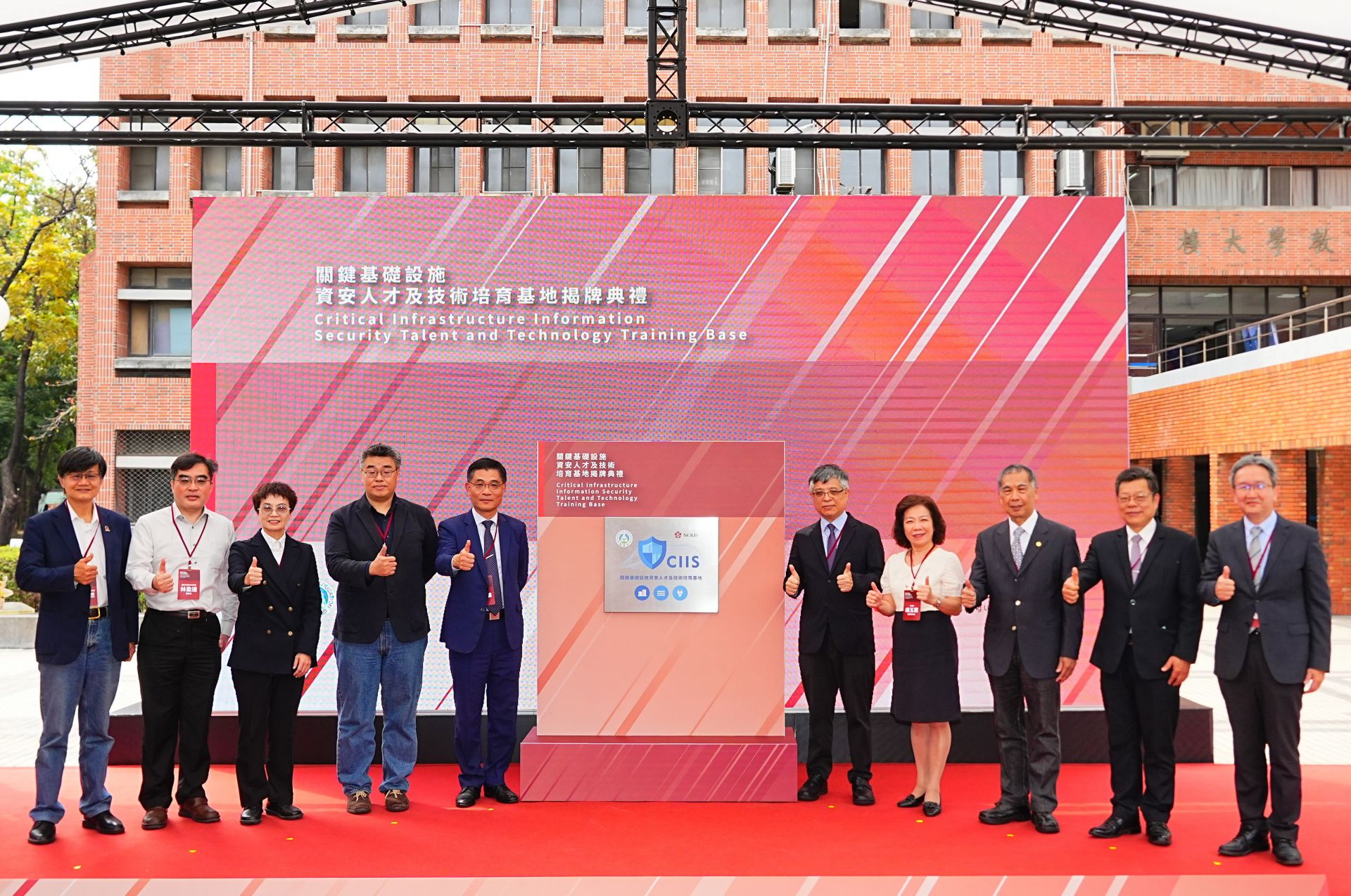NCKU Cybersecurity Center Unveiled to Enhance Taiwan's Critical Infrastructure Cybersecurity Capability.
The Deputy Minister of Education Meng-Chi Liu stated that NCKU's cybersecurity base, equipped with both simulation facilities and practical equipment, would serve as an effective teaching model. With a high demand for cybersecurity talent in society, he expressed expectations for NCKU to collaborate with neighboring universities and vocational schools to maximize the effectiveness of the base.
Deputy Minister Huai-Jen Lee from the Ministry of Digital Development emphasized the importance of NCKU's cybersecurity base unveiling. He mentioned the synergy between NCKU's talent development and the industry focus in Shalun. He anticipates future resource sharing and collaboration between the two bases to meet societal needs. He also welcomed talented individuals to join the government team, especially as this year marks the first time cybersecurity talent is recruited in college entrance exams.
Tainan's Deputy Mayor Ching-Hui Chao personally attended the ceremony to witness the unveiling of Tainan's second cybersecurity base. She highlighted the crucial role of oil, water, and electricity in national operations and emphasized Tainan's commitment to the development of information and communication technology, hoping for further growth in the field to retain talent on the frontline.
The unveiling ceremony was also attended by representatives from Taiwan's major state-owned enterprises, including Chairman Shun-Chin Lee of CPC Corporation, Taiwan, Chairman Chia-Jung Lee of Taiwan Water Corporation, and General Manager Yao-Ting Wang of Taiwan Power Company. They collectively expressed the nation's high regard for cybersecurity in essential industries. Chairman Shun-Chin Lee even praised NCKU's cybersecurity base as a "magic school of cybersecurity" and believed it would make significant contributions to talent and technology development in the future.
President Meng-Ru Shen of NCKU emphasized the importance of talent development in Taiwan's social progress. He stressed that universities should not only focus on talent cultivation but also provide practical resources for technical development. He expressed confidence that NCKU's cybersecurity base, a significant national development project, would not only collaborate with universities and vocational systems but also connect central and southern Taiwan to achieve success.
Located at the Computer and Network Center on the NCKU campus, the cybersecurity base includes simulation facilities and practical equipment covering critical infrastructure systems such as oil, water, and electricity. This includes the Distillation Boiler Circulation System, Water Purification and Supply System, Gate Control System, Solar Power Monitoring System, and Feeder Automation System, simulating equipment found in refineries, water treatment plants, and power plants. To meet educational and training needs, NCKU has also established two cybersecurity attack and defense classrooms and one cybersecurity command room in the Computer and Network Center. The base represents Taiwan's first critical infrastructure cybersecurity training and verification field in higher education institutions.
The cybersecurity training at NCKU's base is open to college students (undergraduate and graduate) nationwide and professionals in related industries. In addition to faculty members from NCKU and partner institutions, cybersecurity experts from state-owned enterprises are also invited to teach, combining cybersecurity theory with industry practice. For college students nationwide, NCKU offers a 270-hour "Critical Infrastructure Cybersecurity Program" during winter and summer vacations, with participants who complete 15 credits within two years receiving a program certificate. For working professionals, there are 60-hour "Critical Infrastructure Cybersecurity Technology Courses" and 18-hour "Critical Infrastructure Cybersecurity Literacy Courses" planned. For more information, please visit the NCKU Cybersecurity Center website.
With the joint efforts of the Ministry of Education and NCKU in establishing the cybersecurity base, along with the Ministry of Digital Development's launch of the cybersecurity service base in Shalun at the end of 2021, Tainan now has two cybersecurity bases. In addition to critical infrastructure, the Shalun cybersecurity service base also focuses on semiconductor, Internet of Things, smart green energy, and smart manufacturing cybersecurity verification fields. It is hoped that NCKU's cybersecurity base will cooperate with the Shalun cybersecurity base to create a multiplier effect in cultivating cybersecurity talent in Taiwan.
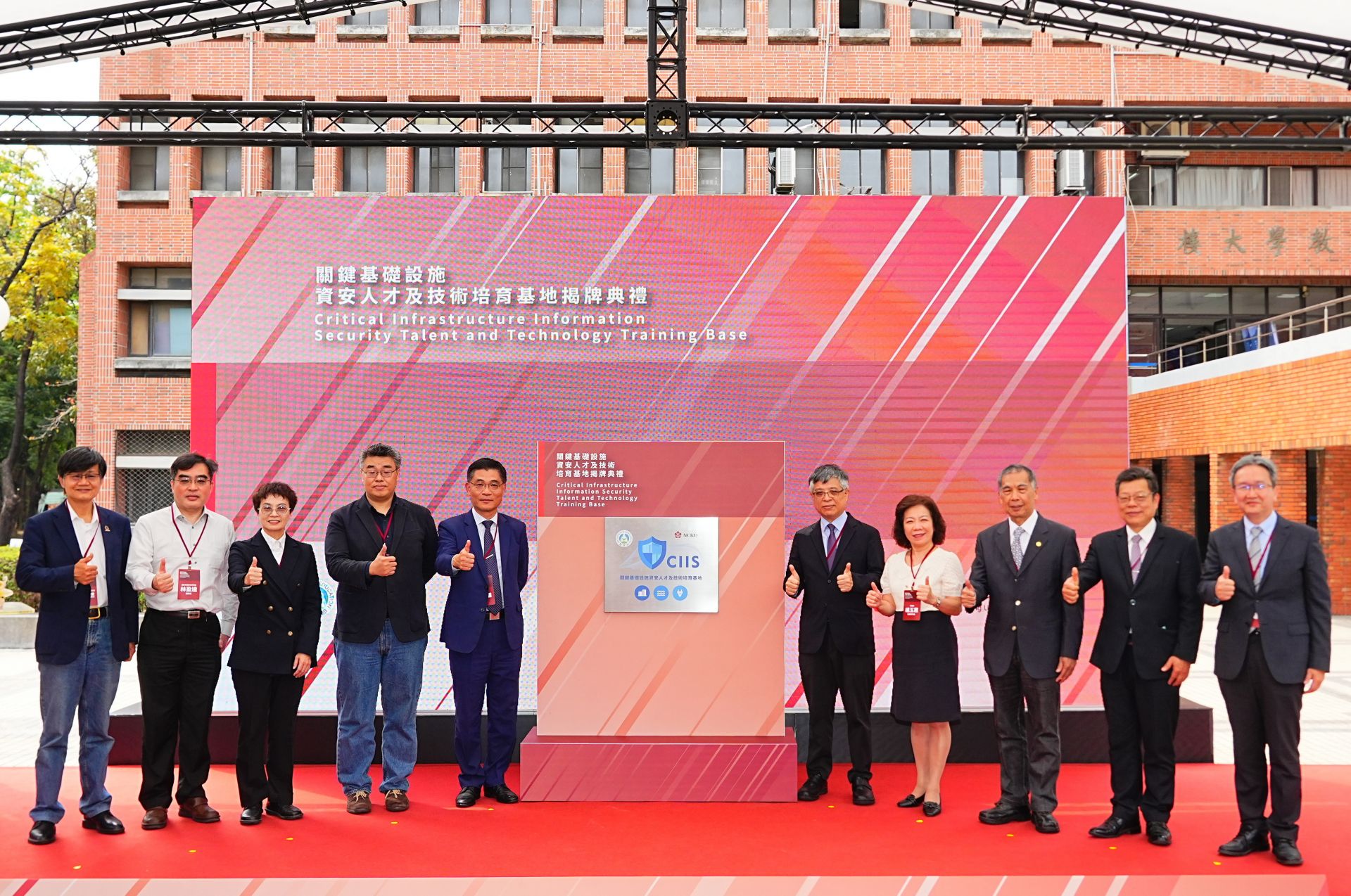
NCKU launched Taiwan's first Critical Infrastructure Cybersecurity Talent and Technology Development Center today with a ceremony attended by representatives from academia, industry, and research.
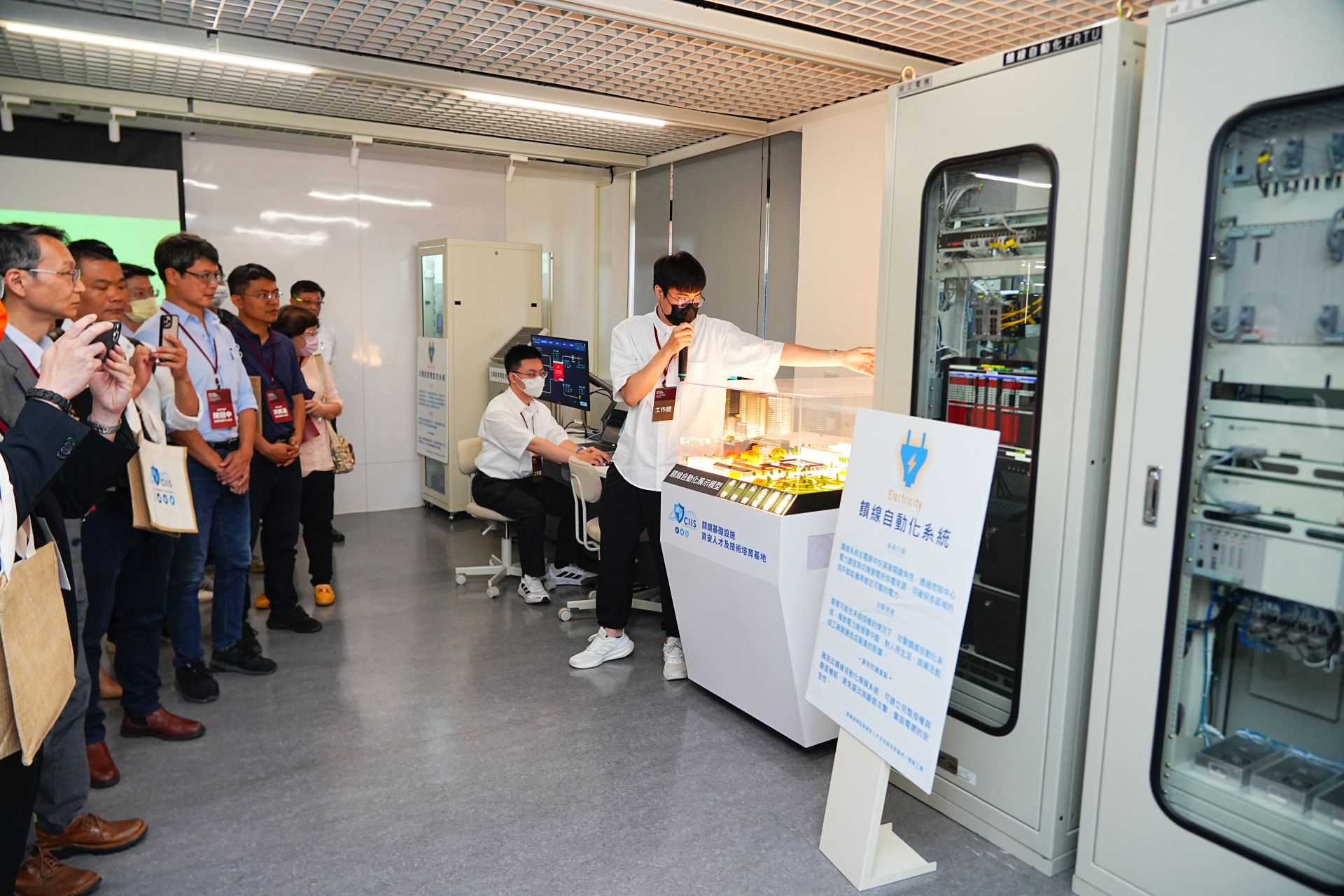
NCKU's cybersecurity center, located at the Computer and Network Center on the main campus, has established five simulated systems for cyber attack and defense training. These include the Distillation Boiler Circulation System, Water Purification and Supply System, Gate Control System, Solar Power Monitoring System, and Feeder Automation System, which simulate equipment found in refineries, water treatment plants, and power plants.
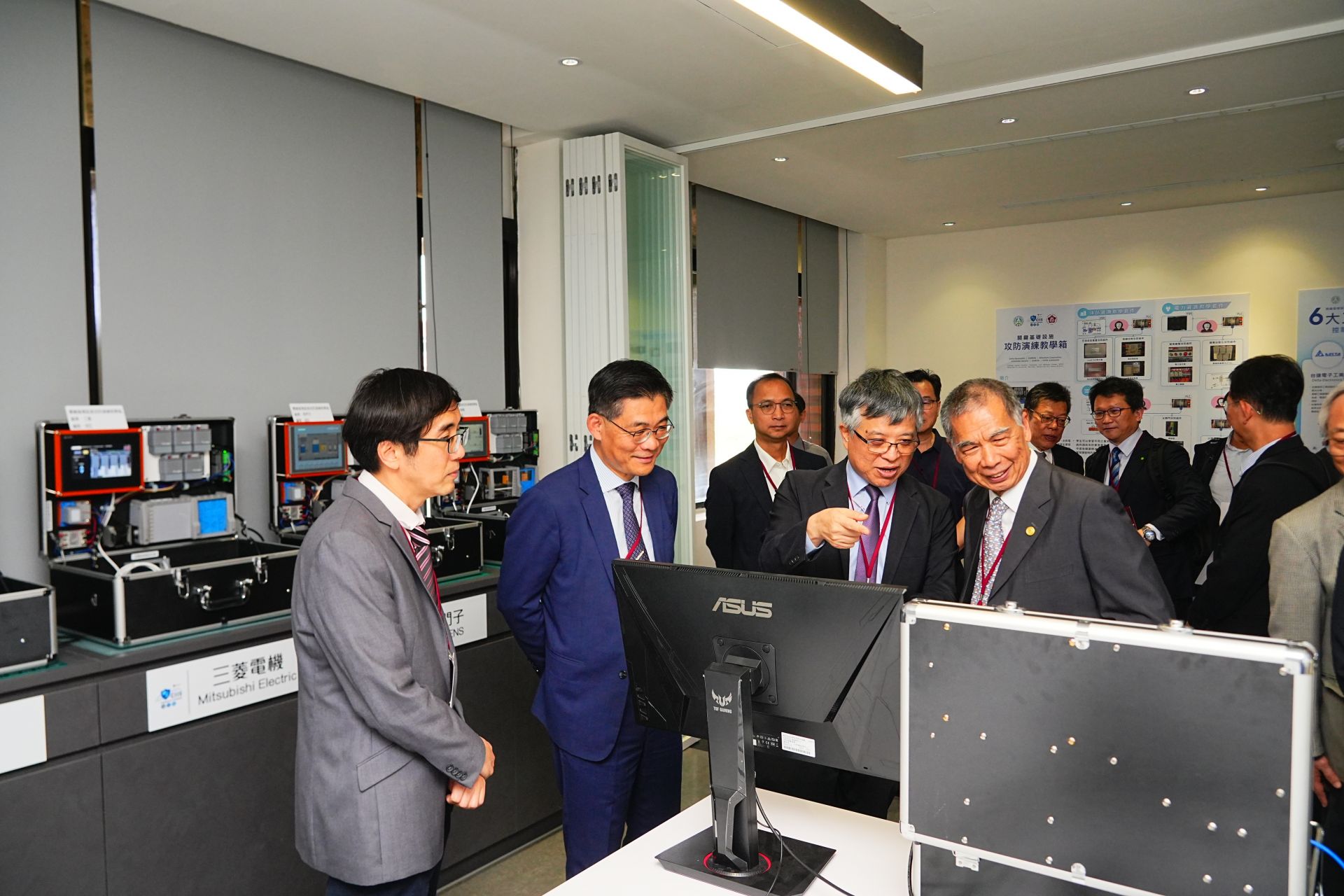
NCKU's cybersecurity center serves both educational and practical purposes. It features simulated cybersecurity attack and defense equipment covering oil, water, and electricity systems, providing training courses on cybersecurity for college students (undergraduate and graduate) as well as professionals in related industries nationwide.
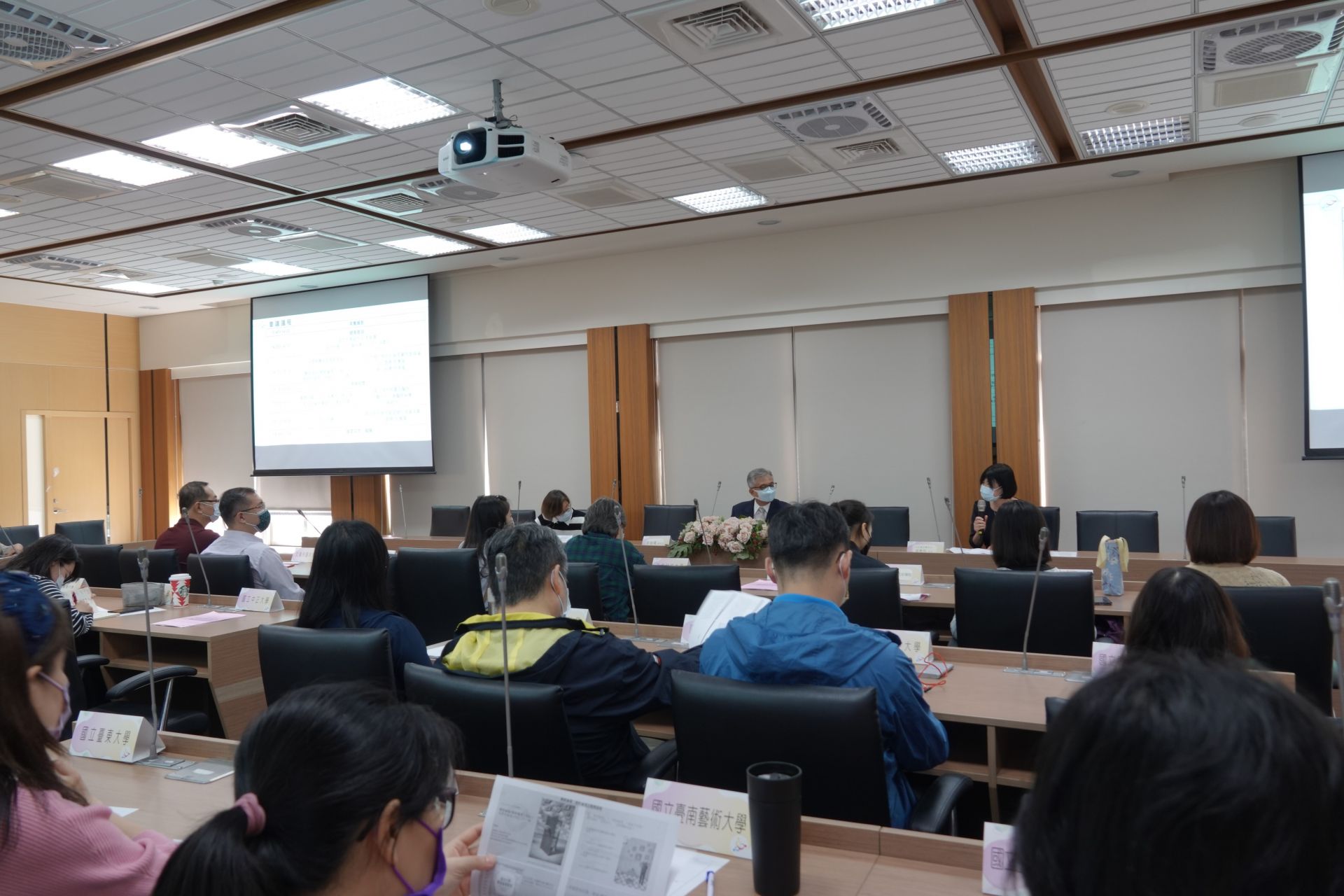
SDG16At NCKU's 2023 Southern Region Research Ethics Alliance Conference, nearly 40 school representatives attended.
View more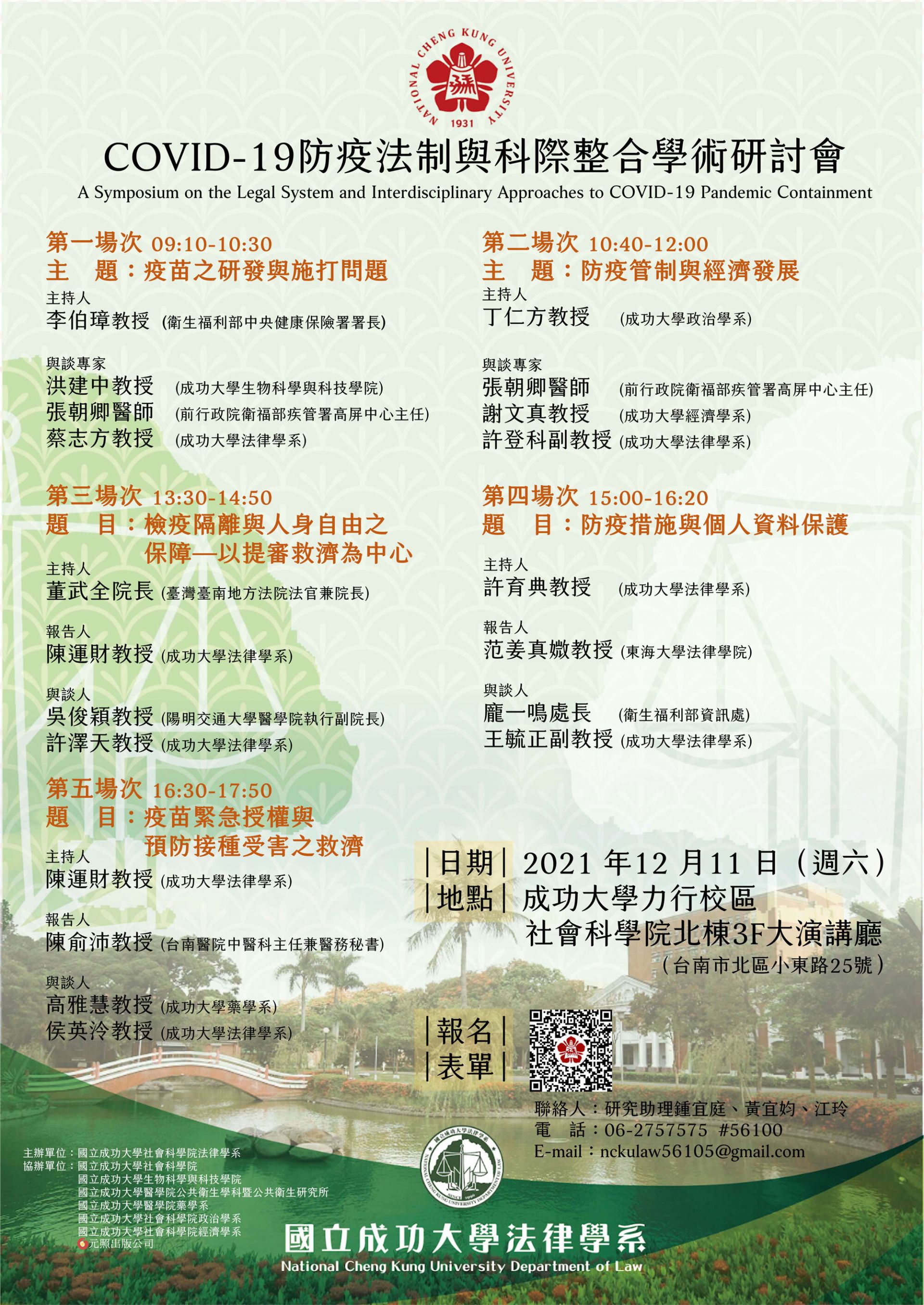
SDG16A Symposium on the Legal System and Interdisciplinary Approaches to COVID-19 Pandemic Containment
View more